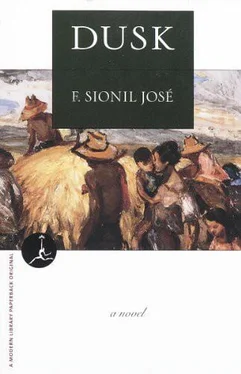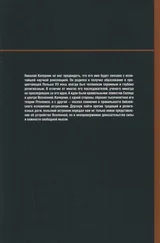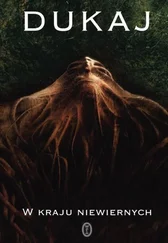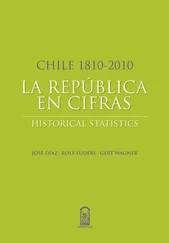He must tell the general, too, grapple with words too painful to use, describe what he saw in Baugen. “The children, the women, the men — they were all dead, their houses burned. And a boy — I tried to help him but it was too late. He died, whispering to me, ‘Americano, Americano.’ And there was a young girl — so very young.” He choked and was soon sobbing.
The general was quiet. He finally spoke. “This is nothing new.”
“But why the children and the women?” Istak asked in anguish.
“Do not ask explanations for what happens in war,” the general said. “We just have to give it to them double when we can.”
The youthful face gleamed and in the sallow light, the young eyes seemed to tease him. “So you are going to be the president’s guide. Surely, you must be tired and hungry.”
“No, Señor General,” Istak said. “There is no time to cat. You must get out of here quickly. I don’t think they saw me — I circled around the village. They could still be there — in Baugen. I did not count, but there must be two dozen of them, with horses. There is no time, Señor General …”
The young Bulakeño put an arm around Istak’s shoulder. “Run away from a few whites?” He laughed softly. “We cannot run on an empty stomach, can we?”
They did not go into the house; there was a table by the bamboo stairs, and the food was placed there in a battered tin plate — cold chunks of rice and pieces of dried carabao meat that had been roasted and burnt in places. There was also a glass of water and to Istak it all never tasted as good as it did now.
They let him eat alone, which he did, swallowing the hard lumps of rice quickly. Then the general called for him in the yard, beyond the hearing of any of the men who were cither asleep or seated on their haunches, talking softly under the stars.
Now they would be able to talk; now he would be able to tell the general everything that the Cripple wanted him to relay to the president.
“ Sigue, ” Del Pilar urged him quietly. “What is it that you really want to say?”
“It is for the president’s cars, my general,” Istak said. “I was told to tell only him,” he caught himself quickly — he was not going to hide anything from this young man, “but since he is not here …”
“He is not here, he is far from here,” the general said curtly. “Continue.”
“Don Apolinario said that we should continue to fight, that the president must be safe always, for he is not just a leader but the symbol of our nation …”
Silence, and a slow nodding of the head.
“Don Jacinto and Don Apolinario — they think that since I know these mountains well, I should be your guide to wherever you want to go. They did not tell me where — all that I know, my general, is that I should guide you through these ranges.”
Istak did not expect the next question: “Where did you say Don Apolinario is now?”
“I already told you, Apo. In Rosales, where I came from.”
“And who is taking care of him there?”
“His former classmate and friend, Don Jacinto. I also told you this. Don Apolinario was ill. His secretary, Cayo Alzona, and his servant were also ill. Don Apolinario’s kidneys weren’t functioning properly, so I gave him medicine to drink — boiled flowers and young leaves of banaba. He is better now.”
“You speak good Spanish,” the general said. “Where did you learn it?”
“In Cabugaw — here in Sur, Señor General. I was born here. I was an acolyte for many years. I know this part of the country very well. Padre Jose, the priest in Cabugaw — we used to go this way and beyond, to the land of the Bagos, where he preached.”
The general was silent, as if he were measuring carefully everything he was told.
“And how is Don Apolinario now? And what is he doing?”
“Writing, Señor General,” Istak said. “Always writing. I copied his drafts because he gets tired and he wants to write so much, to send them all to Hong Kong, and from there, to the world.”
More questions, some of them repetitive. Then it occurred to Istak — like a bludgeon it struck him, filled him with sadness and a dismal sense of futility — that for all the distance he had traversed, the hardships that he had undergone, the general did not believe him. The general was waiting for one mistake with which he could be trapped and then declared a spy.
He remembered what Don Apolinario had said, and it came to him in gleaming clarity. “We must learn to trust our own people, their judgment, if we are to build a nation. There will always be traitors, for it is the wretched who are often the most ambitious, but for every traitor there are a dozen who are true. We are going to build a nation — not of Tagalogs, Batangueños, or Caviteños — we are going to build a nation which includes all our brothers and sisters from the far south to the far north. Do you understand, Eustaquio, why I am here? I could hide much easier in the villages or in the mountains of my own province, among my people, and I would probably be safer there.”
“My general,” Istak said sadly, softly. “You have not really heard any of what I have told you. What do I have to do so that you will believe me?”
Del Pilar stepped back; perhaps he did not expect this farmer to talk like this. He raised his right hand, but the hand did not cut across Istak’s face — it just loomed there, then dropped slowly. In the soft dark, he could see the young face, the earnest but mocking eyes.
“Eustaquio,” he said finally, “no one speaks to me like this.” Then he turned and marched toward the house.
In a while, everyone was stirring, and the yard was soon alive with men, their voices harried and tense. The general finally believed him, but how much he would never know.
They marched out in single file, the horses in the rear and the general himself in the lead, and headed toward the mountain — an endless curtain of darkness across the length of the land.
Although they did not tie him up or hinder his movements, two soldiers never left him. Soon, they entered a fold of land neither cultivated nor inhabited. They seemed to know where they were going. Certainly, the general had a map, a compass. At this time of the year, the mountain streams were shallow and could be crossed on foot.
Once there was a commotion in the middle of the column, for a boar had charged out of the darkness. Though it did not hurt anyone, it had caused some excitement and it was just as well, for they had, perhaps, become sleepy; Istak himself had started to drowse.
It was close to midnight when the column paused. Someone from the front came down the line. Istak thought his guards were to be relieved, for he could not understand their Tagalog. It became clear to him when the men beside him moved on, and he was told in Spanish not to move. It was here where he should stop and he was not to follow them.
He watched them plod on, swallowed by the night, the sound of their marching muffled till it was quiet again. Frustration, massive and overwhelming, swept over him; anger, too, beyond words. His chest tightened and only when he broke down and cried silently, the tears streaming down his face, was he able to breathe easily again.
He wanted to shout, but no one would hear, no one would care. It was all wasted then — the days of racing against the final hour, and it came in one, swift blur — the lowland dangers that he had passed, the patrol which almost trampled him. He knew the way, but he was not trusted, so they left him to go back. At least he was not shot. Did he not convince the general with all he knew about the Cripple? Or was it difficult for the general to believe that a peasant like him, speaking Spanish, could be just a peasant?
Читать дальше












